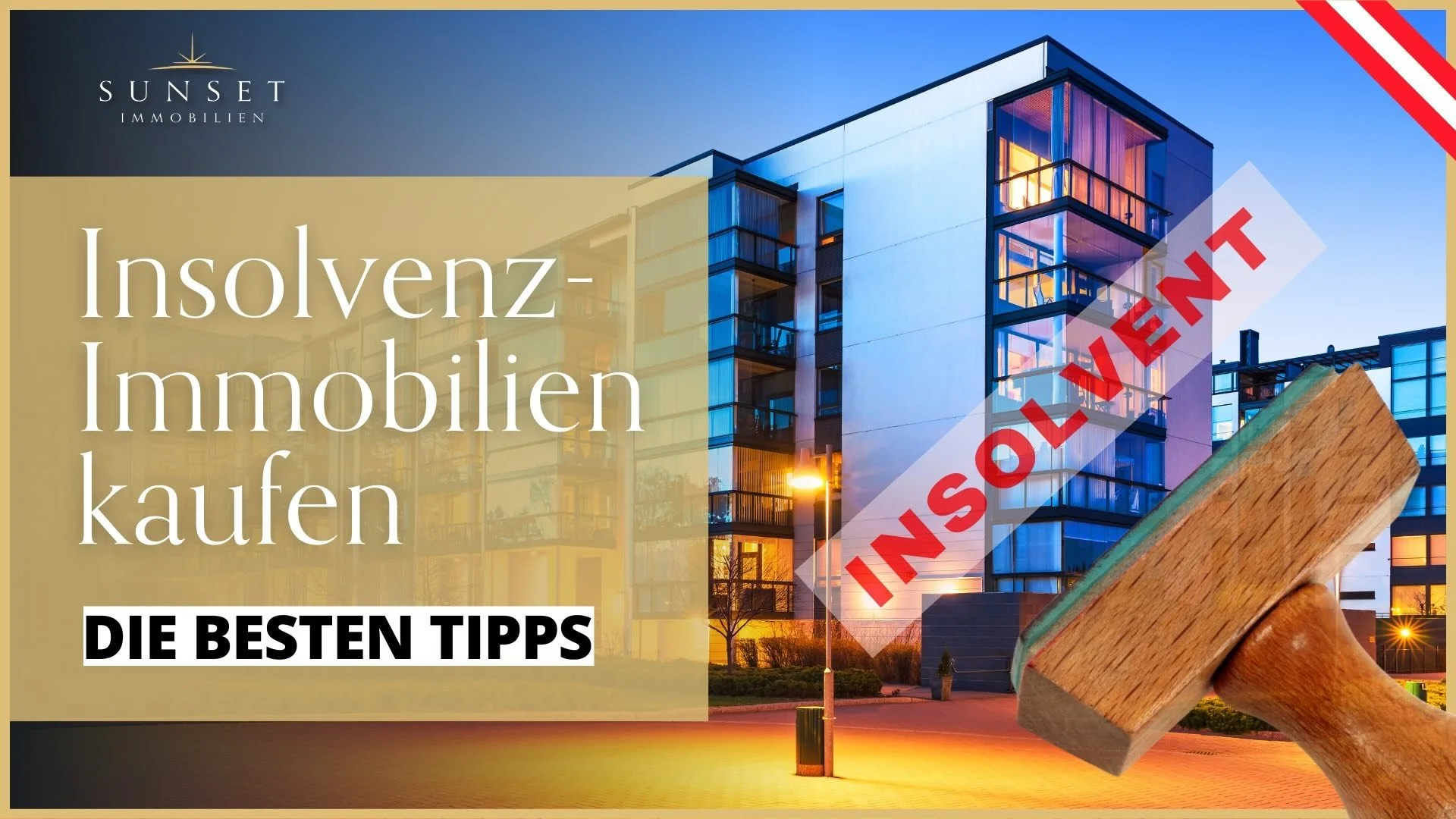Salzkammergut - life between lakes and mountains
Salzkammergut - life between lakes and mountains:
In this article, we invite you on a short journey to the Salzkammergut - one of Austria's most picturesque regions, where nature, traditions and lifestyle merge into a harmonious whole. Between crystal-clear lakes, wooded hills and majestic mountains, a unique space is created - both for living and for relaxation. All this makes the region attractive for tourists as well as for those looking for a special place to live, for a seasonal vacation or as a lucrative real estate investment.
Introduction
In this article, we invite you on a short journey to the Salzkammergut - one of Austria's most picturesque regions, where nature, traditions and lifestyle merge into a harmonious whole. Between crystal-clear lakes, wooded hills and majestic mountains, a unique space is created - both for living and for relaxation. All this makes the region attractive for tourists as well as for those looking for a special place to live, for a seasonal vacation or as a lucrative real estate investment.
Places that will be remembered
Gmunden
The Salzkammergut comprises parts of three federal states: Upper Austria, Salzburg and Styria. It stretches from the foothills of the Alps to the Dachstein massif and is home to over 70 lakes, including the famous Hallstättersee, Attersee and Wolfgangsee. The latter is particularly popular with Austrians because of its turquoise waters, traditional spa towns and the mountain landscape reflected in the mirror-smooth lake. The center of the region is often Bad Ischl - the former summer residence of the Habsburgs. The Salzkammergut not only impresses with its nature, but also with its rich history, architecture and enduring cultural traditions. Thanks to good transport connections and proximity to nature, the Salzkammergut is a place where you can live comfortably all year round.
Salzkammergut - four selected places, one region, countless facets
Gmunden am Traunsee
Elegant lakeside promenade, world-famous Gmunden ceramics and the picturesque Ort Castle characterize the atmosphere of this small town. Lake Traunsee - Austria's deepest Alpine lake - invites you to go sailing, SUP, regattas and walks all year round. Music and art festivals (including the Salzkammergut Festwochen) as well as a solid infrastructure with schools, clinics and fine dining combine urban comfort with spa charm.
Hallstatt
Icon and UNESCO cultural heritage site: against an Alpine backdrop, prehistoric salt mines, an underground salt lake, Celtic finds and the famous ossuary cemetery tell of 7,000 years of history. Narrow alleyways, wooden houses "glued" to the rock and the glistening Lake Hallstatt make the village itself the main attraction.Sankt Wolfgang am Wolfgangsee
Balconies full of flowers, the historic Schafberg cable car, the legendary Hotel Weißes Rössl and the pilgrimage church create a postcard idyll with a lively tradition. Summer events, craft markets and water sports enliven the spa town without disturbing its friendly serenity.Seewalchen am Attersee
If you are looking for crystal-clear water and a peaceful summer retreat, you will find it here on the largest lake in the Salzkammergut. Sailing, diving or simply reading on the veranda set the leisurely pace. Designed with families in mind, the resort is spared the hustle and bustle of tourists.







Quality of life & culture
Between rugged peaks and sparkling lakes, the Salzkammergut offers a rare mix of natural idyll and cultural wealth. International music and art festivals, sophisticated yacht and sailing clubs, traditional crafts and a dense network of spa and wellness facilities provide variety. From rustic lakeside inns to award-winning cuisine, the region celebrates the pleasures of hospitality.
What they all have in common: first-class water quality, short distances to skiing and hiking areas, a warm, tradition-conscious population - and the feeling that time and joie de vivre are in perfect balance here.
Real estate in the Salzkammergut: lifestyle with investment prospects
The real estate market in the Salzkammergut has long been of interest not only to locals, but also to Austrians from other regions and foreign buyers. There are several reasons for this: limited supply, high demand for rentals in the tourist season and the stable attractiveness of the location. Here, quality counts more than quantity. Due to the limited building land, real estate is rare here.
In Gmunden, apartments with lake views or houses on hills are particularly in demand. The market is mature, but offers continue to appear - both in existing properties and in new construction projects.
Sankt Wolfgang attracts guesthouse owners and investors interested in short-term rentals. The town center is densely built up, but a little further afield you will find alpine chalets with character and history.
There are more privately owned plots and detached houses in Seewalchen, ideal for those seeking tranquillity and panoramic views. Properties here are often inherited, making the market even tighter and the purchase particularly valuable.
Hallstatt is in a category of its own. There are practically no new buildings here, and even long-term rental properties are rare. Anyone who owns a property here is not only acquiring ownership, but also status, an excellent investment, history and landscape all in one.
Important to note: In many areas of the region, there are restrictions on non-residents buying second homes, and environmental regulations also apply near lakes. Transactions therefore require careful preparation and support.
Who is the region suitable for?
The Salzkammergut is the choice of those looking for a combination of retreat and visual abundance, the balance between seclusion and accessibility, tradition and modern lifestyle, who are tired of the noise of the big city but don't want to do without comfort. Families will find a safe, green environment with good infrastructure. Investors benefit from a stable market.
Advantages of the region:
Unique nature: harmony of lakes, mountains and open landscape.
Attractive all year round: summer vacations, autumn strolls, tranquillity in the snowy winter - every season presents a new face.
High quality of life: reliable infrastructure, safety, cleanliness, diverse leisure opportunities.
Rich cultural landscape: from folk customs to modern festivals.
Solid real estate market: low vacancy rate, stable prices and investment attractiveness.
Special features of the region:
Strict regulations: Land on lakes and slopes is often protected or subject to building regulations.
High prices on the lake: Real estate in privileged locations is expensive and scarce.
Restrictions on second homes: In some municipalities there are limits on second homes - the status should be checked before buying.
Conclusion: For those who want to live with content
The Salzkammergut is a choice for those who are not just looking for beauty, but for a meaningful lifestyle. Tranquillity, aesthetic surroundings, reliability and depth are valued here.
The stylish life in Gmunden, the inspiring seclusion in Sankt Wolfgang or the natural harmony in Seewalchen - all tell of different things, but united by a life choice beyond fashion and hustle and bustle.
Perhaps it all starts with a view of one of the lakes in the Salzkammergut - and the feeling: I'm at home.
Lake Constance - life on the shores of three countries
Three countries, one lake - and countless possibilities:
The Lake Constance region inspires with its unique nature, high quality of life and stable real estate markets. Whether as a main residence, vacation destination or investment - this region combines alpine charm with international flair. Discover what makes life on Lake Constance so special.
Introduction
Lake Constance is one of the most impressive regions in Central Europe. It connects three countries - Austria, Germany and Switzerland - and offers an exceptional quality of life, a lively international atmosphere and a stable real estate market. In this article, we show why the Lake Constance region not only attracts tourists, but also people who are thinking about relocating or investing in real estate.
Three countries - one lake
The Lake of Constance is located in the border region of:
Austria - western part of the federal state of Vorarlberg (district of Bregenz)
Germany - federal states of Baden-Württemberg and Bavaria
Switzerland - Canton of Thurgau
It consists of the Upper Lake, the Lower Lake and the Seerhein. The lake is fed by the Rhine and is excellently connected by road, rail and water. This geographical and infrastructural location makes the region ideal for a main residence, second home or business location. The climate is mild, with warm summers and snowy winters - perfect for all seasons.
Nature and atmosphere
The landscape around Lake Constance is diverse and impressive: gentle vineyards, orchards, crystal-clear water and Alpine panoramas. The region is known for its "northern Italian" atmosphere - a place where life slows down but remains culturally rich.
The town of Überlingen on the German side is a particular highlight. The lakeside promenade with palm trees, the charming old town and the southern flair are reminiscent of Italy. Here, elegance meets relaxation - the perfect mix for people who appreciate quality and atmosphere.






Quality of life and cultural environment
The Lake Constance region combines a high quality of life, cultural diversity and natural recreation. The lake is surrounded by charming towns and quiet villages in three countries - Austria, Germany and Switzerland - which are easily accessible by car, train or boat thanks to a well-developed transport network.
In Vorarlberg, Bregenz invites you to enjoy culture with the famous Bregenz Festival on the floating lake stage. Things are quieter in Fussach, Hard and Höchst - green communities with nature reserves, canals and plenty of space for nature lovers. Lochau, on the other hand, scores with its magnificent lake views and sought-after hillside locations.
On the German side, Überlingen is particularly popular with its southern flair, historic town center and excellent quality of life - a place with an almost Mediterranean feel. Meersburg, Langenargen and Friedrichshafen offer a maritime lifestyle right on the water, while Constance, as an economic and academic center, is particularly popular with tenants and property owners.
Switzerland is also represented: Kreuzlingen is located directly on the border with Constance and offers urban living with a high quality of life. Rorschach, with its modern residential complexes and views of the Alps, is somewhat quieter.
There is an abundance of leisure activities around Lake Constance. The lake itself takes center stage: sailing, swimming, stand-up paddling and boat trips are part of everyday life. The Lake Constance cycle path takes cyclists on over 270 kilometers around the shore, while hiking trails through vineyards and along the water invite you to explore. The offer is complemented by cultural events - for example in Bregenz, Constance or Überlingen - as well as upscale gastronomy with influences from all three neighboring countries.
Real estate on Lake Constance
The real estate market on Lake Constance is one of the most sought-after in Central Europe - internationally oriented, stable in value and diverse.
Austria - Region between Hörbranz and Gaissau
Fussach, Austria
Bregenz - lively city with demand for centrally located apartments and houses near the lake
Hard, Fussach, Höchst - green, quiet locations with gardens, canals and development areas
Hörbranz, Lochau - exclusive retreats with good infrastructure, with popular hillside locations with panoramic lake views
Germany - Region between Überlingen and Lindau
Constance, Germany
Überlingen - outstanding location with old buildings, villas, terraced apartments and lake views
Meersburg, Langenargen, Friedrichshafen - towns with a high quality of life, historic buildings and wine culture
Constance - attractive for investors, families and professionals
Switzerland - Region between Rorschach and Kreuzlingen
Arbon, Switzerland
Rorschach - a town with history and high location quality
Kreuzlingen - stable prices, good infrastructure, popular with cross-border commuters
The Swiss side impresses with its stability, high level of service and long-term investment opportunities.
Lake Constance region
The Lake Constance region offers a unique combination of quality of life, nature and economic stability. For anyone wishing to live or invest here, it is worth knowing the most important advantages and special features. Three countries, one living space: the cultural diversity and well-developed infrastructure of the neighboring countries of Austria, Germany and Switzerland create an attractive living environment with many opportunities.
Advantages
High quality of life: Safety, clean nature and an excellent healthcare system ensure a pleasant and carefree life.
Stable real estate market: The market offers long-term value potential - particularly interesting for investors and owners.
Unique natural landscape: The combination of Lake Constance, the Alpine panorama and the famous thermal baths creates relaxation and leisure activities right on the doorstep.
Diverse range of housing: Whether urban city apartments or quiet rural houses - everyone will find the right home here.
Excellent transport connections: With highways, rail connections, ferries and several airports, all major destinations are easily accessible.
Special features
High real estate prices in lakeside locations: The sought-after locations on the lake are scarce and correspondingly expensive. Careful planning is therefore advisable.
Limited supply in popular locations: In the most attractive communities, the selection of available properties can be limited, which increases competition.
Strict regulations in Switzerland: Tax and real estate law are more complex there, which can have an impact on purchase and ownership conditions. Sound advice is particularly important here.
Seasonal tourism: In summer, the influx of holidaymakers creates a lively atmosphere, but also increased traffic and a busy infrastructure.
Conclusion - Who is the Lake Constance region ideal for?
The Lake Constance region appeals to people who value quality of life, proximity to nature and a secure investment environment. Whether as a main residence, second home or investment property - alpine charm meets international lifestyle here.
Families, those seeking peace and quiet, culture-loving city dwellers and investors with a vision feel particularly at home here. If you want to experience Mediterranean flair in the middle of Central Europe, you will be thrilled when you stroll through the old town of Überlingen.
BUY INSOLVENCY PROPERTY
WHAT IS INSOLVENCY REAL ESTATE ALL ABOUT?
The purchase of a property from insolvency involves a property belonging to an insolvent debtor. If a real estate company becomes insolvent, the insolvency administrator takes over the administration and sale of the assets in order to satisfy creditors. The administrator, usually a specialist lawyer, is responsible for the sales process and must achieve the best possible price. Creditors themselves can also influence the process. Insolvent properties are sold in two ways: via a so-called forced sale and, more frequently,by private treaty, i.e. to private buyers as normal. In this article, we take a look at the sale of insolvency properties by private treaty in Austria and the most important points to bear in mind.
HOW DOES IT WORK?
Valuation & expert opinion: The valuation is carried out by a court-appointed expert. A professional valuation is essential for a fair payment to creditors. They use various methods, such as the comparative value, income value or asset value of a property, all packed into a report that is usually 30 to 100 pages long. Important: The estimated price is also the lower limit or minimum price below which the property should/may not be sold. If a purchase offer were to be made below this estimated price, this would give rise to the suspicion that the assets were being squandered, which the insolvency administrator and court should of course not expose themselves to. In addition, this price creates transparency and trust among all parties involved.
Sale & offer: The sale begins with the appraisal, which is published (https://edikte.justiz.gv.at/) and can be viewed by anyone. However, insolvency administrators and surveyors are not available to answer questions about the property. I have personally experienced how some people have tried to view the property privately but have not received any further detailed information or answers to their questions. It is therefore advisable to go through an estate agent who specializes in insolvency properties, perhaps even has a legal background themselves, and who knows the process inside out and can provide you with massive support. Once you have decided on a property after careful examination, you can submit an offer to the insolvency administrator. Some require specific conditions for submitting an offer, such as the commitment period, while some insolvency administrators are more flexible.
Award & settlement: Ideally, you are the only bidder and the seller wins the bid. If there are several bidders in the running, the insolvency administrator has the option of either setting a deadline by which all bidders can submit a further bid or inviting the bidders to a court hearing where a bidding process takes place. Once the bid has been accepted, the purchase agreement is deemed to have been concluded. The buyer must then submit a purchase contract, which is agreed with the seller, and then transfer the purchase price to an escrow account held by the administrator. The final step is to go to the insolvency court, which still has to approve the purchase agreement. If the purchase price achieved is at or above the estimated value, you will usually receive this court approval without any problems. A practical tip at this point: Because the insolvency administrator's commitment to the purchase offer is already fully valid and court approval only postpones its validity, so to speak, it can make tactical sense to submit a commitment period for your own purchase offer that is as short as possible. If the trustee in bankruptcy then agrees, you may have beaten out other bidders who do not manage to submit their own purchase offer by the end of the commitment period. So time is of the essence here. Important note: Even after the purchase agreement has been concluded with the insolvency administrator, it is still possible to submit a higher offer before the court approves it. This makes it all the more important to act quickly with the help of a specialized real estate expert (like us).
DISADVANTAGES & RISKS
Overlooked defects: due to hasty purchase decision
Lack of warranty: Exclusion of warranty, no liability, as no assets available
Complexity of insolvency proceedings:
1. communication with the insolvency administrator is more complex, as he is not specialized in sales and can hardly provide any information. They usually only refer to the valuation report of the court expert. Other documents are usually not available, so communication and documentation on the property are too poor for most interested parties and professional support should be sought.
2. waiting period until the final approval of the purchase contract by the court;
3. no trustee - prepayment obligation without a trustee is unusual, but you pay into a separate trust account of the trustee in bankruptcy
Financing problems: no financing proviso, financing commitment must be in place
VAT: In the case of property developer bankruptcies, it can happen that a property is then sold with VAT. This must be taken into account when submitting the purchase offer.
ADVANTAGES & OPPORTUNITIES
Properties at or below market value: Why? The appraisal represents a general market value, but often does not include all aspects relevant to the purchase, as many appraisals often do not take into account factors such as micro-location, furnishing details or energy efficiency. In addition, many appraisals are prepared as so-called desk appraisals, without an on-site inspection of the actual property. And there may well be attractive estimates in terms of price. Here, too, it is important to consult a real estate expert or estate agent who can at least provide a second estimate of the property so that you don't buy too expensively.
Lower risks for the seller: A purchase from a bankruptcy estate typically involves considerably lower risks for the buyer than a purchase from a private or commercial owner, whose financial situation, reliability and dependability are often difficult to assess. In any case, a purchase from the liquidator eliminates the risk that the property will be sold several times or otherwise encumbered with a lien.
Deletion of liens / mortgages: Transferring the purchase price to a bankruptcy account also ensures that the purchase price is used to satisfy the bankruptcy creditors at a later date, which ultimately also results in the deletion of the liens and mortgages.
Sale for financial reasons: Conversely, this means that the probability of selling due to structural defects is lower in the case of insolvencies. Nevertheless, this does not exempt you from taking a very close look at a property, including its construction.
Lower ancillary costs: 1. since the insolvency administrator himself is the trustee of the insolvency estate and therefore no extra trustee is required, there are no trustee costs. 2. if you buy without the help of a real estate expert or broker, their fees are eliminated.
COMPARISON INSOLVENCY VS. PRIVATE PURCHASE
SUMMARY & RECOMMENDATION
There are often opportunities when buying insolvent properties, but there are also risks. Appraisals set a minimum price, but hidden defects and complicated processes are possible. It is therefore advisable to seek advice and support from an expert when buying insolvent properties - from gathering information, viewing, appraising and assessing the advantages and disadvantages of a property to communicating with the insolvency administrator.
So, despite the greater complexity, which a professional estate agent more or less offsets for a potential buyer, the purchase of such a property can be a worthwhile acquisition if approached correctly.
There are other aspects to the whole topic and some additional tips that I would be happy to discuss with you in a personal meeting. If you have any questions or need advice, my team and I will be happy to help you anywhere in Austria!
Any questions ?
Dr.iur. Andreas Bonschak, LL.M.
Costs of selling real estate in Austria
Essential costs when selling real estate in Austria: A comprehensive guide for sellers
What are the costs of selling a property in Austria?
In principle, in Austria the main burden of the additional costs when buying/selling real estate, and that is about 10% of the purchase price, is borne by the BUYER and not the seller. We will now go through which costs typically affect the seller and which are negotiable:
Broker commission
Costs: 3.6% of the purchase price incl. VAT; negotiable.
Important: Only due on sale. Includes services such as price estimation, advertisements, customer inquiries, viewing appointments.
Details: If you commission an estate agent with the sale, you will normally be charged 3.6% of the purchase price including VAT. This is a matter of negotiation and many estate agents will be a little more accommodating in terms of price. Important: This commission is only paid in the event of a successful sale and covers all the estate agent's expenses and work such as price estimates, advertisements, customer/prospective buyer inquiries, viewing appointments, etc.
Energy certificate
Costs: From approx. 200 EURO.
Important: Must be presented in the advertisement or before the purchase contract is concluded. Normally paid by the seller, but can be passed on to the buyer by contract.
Details: You must actually hand over the energy certificate to the buyer in the advertisement or at the latest before the purchase contract is concluded. The costs for the energy certificate vary widely. However, some can be ordered on the Internet from around 200 EURO. These costs are usually borne by the seller. However, the purchase contract may stipulate that the costs must be reimbursed by the buyer or these costs may simply be included in the purchase price.
Purchase contract obligations
Costs: Variable depending on obligations (repairs, clearing out, decluttering).
Tip: Costs usually deducted from the purchase price; seller typically responsible.
Details: If you commit to improvements, repairs or clearing out and decluttering in the purchase contract, the costs will of course be incurred. However, these are usually simply deducted from the purchase price so that the buyer is responsible for all repairs. In practice, it is advisable to stipulate in the contract what is to remain or be removed and who will bear the costs (typically the seller), especially for clearing out and decluttering.
Notary and purchase contract
Costs: Notary, trustee, drawing up the purchase agreement.
Common: Escrow costs are often split between buyer and seller.
Details: The costs for the notary, trustee and drawing up the purchase contract can be passed on to the buyer by contract. However, it is common for the escrow costs to be split equally in the amount of a few hundred euros.
Real estate transfer tax
Note: Is usually paid by the buyer and is therefore not incurred by the seller.
Real estate income tax
Costs: 30% of the gain achieved; with exceptions.
Exception: No tax for main residence or reduced tax for properties acquired before 2002
Details: This tax is generally 30% of the gain realized. However, there are some exceptions and exemptions: The most important of these is if you have registered your main residence in the property sold for 5 years continuously in the last 10 years or 2 years continuously from the purchase of the property, then this tax does not apply. In addition, a reduced tax rate of only 4.2% of the purchase price applies to properties purchased before 2002.
Release from encumbrances in the land register
Costs: A few hundred EURO for the deletion of existing mortgages.
Responsible: Usually to be borne by the seller.
Details: For the deletion of existing mortgages on a loan by a trustee, costs of a few hundred euros are incurred. These are to be paid by the seller, as they are to be carried out in his interest.
Mortgage loan
Possible: Extra costs for early loan termination.
Tip: Consider whether a loan termination can be avoided in order to avoid additional costs.
Details: If you have taken out a fixed-interest loan or fixed-rate loan and have encumbered the property with a mortgage, you may have to expect extra costs for the early termination of the loan. The financing bank may charge a so-called early repayment penalty if it has suffered a loss of interest due to the early termination of the loan.
Our tip: You should therefore consider foregoing a loan repayment, which incurs additional costs and does not result in a higher sales price. Instead, use the loan for the next property to be financed after the property sale.
Every real estate sale is unique and requires an individual approach. For comprehensive advice tailored to your specific case, I recommend that you contact us.
Disclaimer: Please note that the information provided here does not constitute legal advice and I assume no liability for the accuracy, completeness or timeliness of this information.
Selling a house - with right of residence
Discover in our latest video how you can sell your home while retaining a lifelong right of residence. Interesting for owners who are looking for financial flexibility without having to give up their familiar surroundings. We highlight the key benefits, challenges and legal aspects to consider.
Please contact us for further information and individual advice.
Webinar: Top Real Estate Locations in Austria
In a series of webinars, we provide advice and tips on the topic of "Real Estate in Austria" - especially from the perspective of a potential buyer from abroad.
In this webinar we cover an overview of the most important real estate locations in Austria:
Vienna
Salzburg
Kitzbühel
Alpine regions
Lakes in Austria
Southern Styria
Webinar: Buying Real Estate in Austria
In a series of webinars, we provide advice and tips on the topic of "Real Estate in Austria" - especially from the perspective of a potential buyer from abroad.
In this webinar, we'll cover the following topics in an overview:
What are the advantages of buying real estate in Austria? Advantages, but also risks and disadvantages?
What is important when buying real estate in Austria?
Legal, tax and economic aspects
Costs & process of a real estate deal
Our recommendations for action
Real Estate South Styria
Southern Styria has the nickname "southern Styrian Tuscany" and inspires more and more real estate buyers with its landscape, culinary delights and climate. See the visual impressions in this video:
Among the most popular places are:
Gamlitz
Ehrenhausen
Großklein
Leutschach
Kitzeck
Particularly desirable in this region are the properties, where you can enjoy the distant view, for example, from a country house on one of the hills. From time to time, a plot of land, a vineyard or a winery comes on the market. However, because there has been a strong buying boom in recent years, the supply of real estate is now not huge. So it's a case of constantly staying tuned and searching until something interesting comes in at some point.
If you want us to keep you informed, you can register with us as a SUNSET Member ' with your search criteria and be placed on our member distribution list.
In a series of articles we give advice and tips on the subject of "Real Estate in Austria" - especially from the perspective of a potential buyer from abroad. You can find more articles here '


































